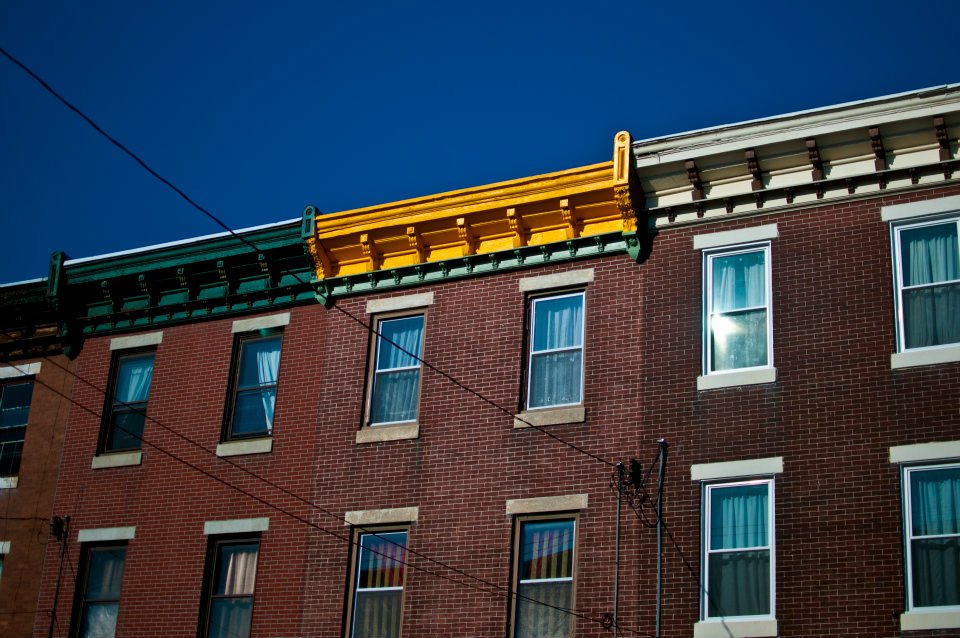
Emergency Housing Protections Act proposed to help Philadelphia renters amid the COVID-19 shutdown
The legislation includes six bills and one resolution introduced to City Council on May 1.
Back when Philadelphia began its lockdown to curb the spread of COVID-19 in mid-March, Councilmember Helen Gym stood alongside Councilmember Kendra Brooks to introduce two protection resolutions to protect vulnerable Philadelphians from the inevitable coronavirus shockwave to come.
At the time, Gym’s called for an eviction moratorium and Brooks’ was the development of an action plan to support both service industry and medical professionals in the city.
Approximately month-and-a-half later, the two have been joined by Councilmember Jamie Gauthier and a host of other co-sponsoring councilmembers to expand upon Gym’s initial call for eviction protection.
On a virtual call on April 30, all three announced the Emergency Housing Protections Act. The legislation is a combination of six bills and one resolution designed to protect Philadelphia renters from losing their homes as the COVID-19 shutdown looks to continue for still an indeterminate amount of time.
The Pennsylvania Supreme Court’s eviction moratorium ended on April 30, but Philadelphia’s courts aren’t slated to resume eviction hearings until June 1.
Despite the halt on evictions, landlords are still charging rent with more tenants losing work by the week and being unable to pay.
One of them is Aryi Peoples. As a result of the COVID-19 shutdown, Peoples’ digital marketing business has dried up and her daughter lost her teaching assistant job.
With no income, Peoples contacted her landlord for an extension to April 5 from April 1 to pay rent.
“We had every intention to pay the rent, but we needed a few more days,” she said.
Her landlord responded by shutting off her hot water and maintaining an $80 late fee, which Peoples could not afford in addition to her rent.
One of the bills proposed by Gauthier as part of the Emergency Housing Protection Plan would allow rent payment plans to be negotiated between landlords and tenants like Peoples and her daughter who lost work because of the COVID-19 shutdown.
The payment plans could last up to 12 months. Gauthier’s other bill would provide renters with an avenue to recover damages if their landlord illegally evicts them while the moratorium is in place.
Gym’s two bills as part of the act would extend the eviction moratorium for 60 days after the state of emergency order is lifted (undetermined) and create an eviction diversion program for renters and landlords to resolve conflicts before they result in formal eviction.
Brooks’ bills stabilize rents on all rental properties in the city for the duration of the pandemic and one year after, and waive late fees and penalties on renters.
“We are absolutely clear that housing is a human right. It is not only the cornerstone of an anti-poverty agenda, it is the cornerstone of any economic recovery agenda for the city of Philadelphia and the majority of its residents,” said Gym.
Beyond its local action, City Council is also calling for more federal and state aid to go towards helping renters.
It’s a similar message to Philadelphia Mayor Jim Kenney, who’s feelings on the Emergency Housing Protection Act are unknown as of yet.
In the Mayor’s Office’s daily COVID-19 press briefing on April 30, Kenney said Philadelphia “is substantially behind in funds” as a result of the shutdown.
“We cannot do things without state and federal funds,” he said.
RELATED CONTENT
Kenney’s updated budget for the city in the aftermath of COVID-19 released on May 1, also looks grim compared to the record budget laid out in February.
A big question raised in response to the Emergency Housing Protection Act was where money would come from for certain programs or covered costs.
Gym’s response was that the investments were worth it to keep people in their homes and that it would cost the city way more to house people in shelters.
Gauthier also echoed the “very real cost” of having an uptick in evictions like could happen without protections. She mentioned the financial burden on courts and shelters and the potential furthering of the health crisis with more people out of a home.
The bills in the act also face opposition from landlords.
The Pennsylvania Apartment Association (PAA) released a statement in response to the Emergency Housing Protections Act that warned it could still jeopardize housing for Philadelphians when banks take over properties from landlords.
Like the Mayor and City Council, the PAA supports a call for more funding from the federal and state governments.
At the state level, advocates called for rent cancellation in conjunction with mortgage deferrals so both landlords and tenants could benefit.
The Emergency Housing Protections Act was formally introduced on May 1 and likely has a three to four-week timeframe before anything is passed and implemented.

This article is part of Broke in Philly, a collaborative reporting project among more than 20 news organizations, focused on economic mobility in Philadelphia. Read all of our reporting at brokeinphilly.org.











LEAVE A COMMENT: